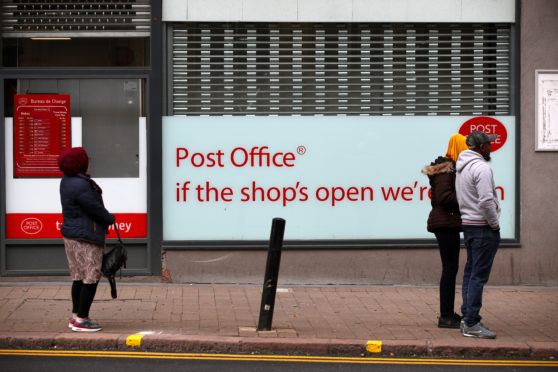
Holidaymakers travelling from the UK are typically taking more money with them than they did before the coronavirus lockdown started, analysis from Post Office Travel Money suggests.
They are also more likely to have currencies delivered to their home after buying online, and to make contactless purchases using their Travel Money card, as the coronavirus pandemic has changed people’s habits.
Post Office said the average currency transaction is for £423 – 42% higher than an average of £297 before the lockdown started – perhaps so that they will have some extra cash ready in case of any knock-on impacts from the coronavirus pandemic.
After re-activating its online and branch pre-order foreign currency exchange service at the end of June, Post Office Travel Money is now offering around 60 currencies.
It has also seen shifts in currency purchasing patterns, with the volume of currency purchased online for home delivery having more than doubled.
Recent months have also seen an increase in the percentage of contactless transactions made by people using the Post Office Travel Money card.
These have risen from an average of 50% before the lockdown to around 64% now.
Over half (55%) of Travel Money card transactions are now euro ones – up from 35% pre-lockdown. Only 3% are US dollar transactions compared with 14% before lockdown.
The Foreign and Commonwealth Office (FCO) recently updated its global advice against “all but essential” travel, exempting certain destinations that it says no longer pose an unacceptably high risk for British travellers.
The FCO says that, before people travel, they should find out about any local entry restrictions, or screening or quarantine requirements that might affect them.
The Post Office’s latest holiday money index also found that demand for holiday money in July showed a positive recovery after a prolonged slump during lockdown.
At the same time, it said sterling has held its value and is now worth more against many currencies compared with a year ago.
Visitors to Turkey will see a particularly strong gain – equating to £97 more to spend on a £500 transaction, the Post Office said.
The provider said sales of the euro in particular have been bouncing back after lockdown eased.
Euro purchases on its Travel Money card in July surged to 10 times the level before the start of the lockdown period.
Nick Boden, Post Office head of travel money, said: “We do recommend that people planning to travel abroad follow FCO advice carefully.”

Enjoy the convenience of having The Sunday Post delivered as a digital ePaper straight to your smartphone, tablet or computer.
Subscribe for only £5.49 a month and enjoy all the benefits of the printed paper as a digital replica.
Subscribe